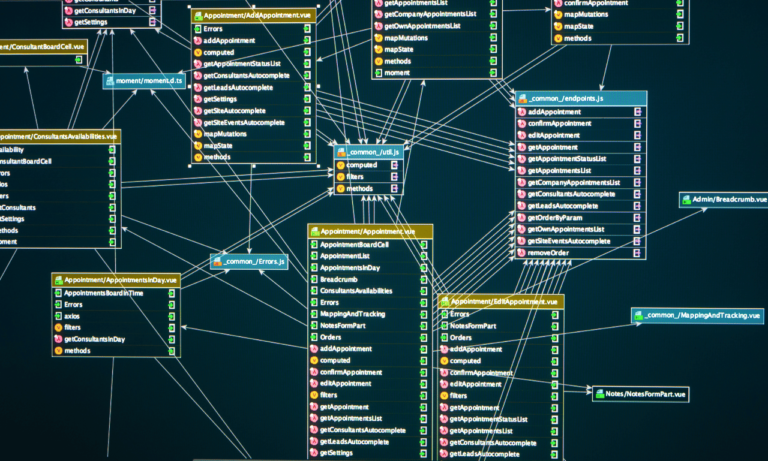Phone:
(+65)8319-0742
In the realm of skill development, the concept of Cognitive Apprenticeship has emerged as a transformative framework, pushing the boundaries of traditional learning environments. This innovative approach focuses on intimate collaboration and observation, allowing for profound knowledge acquisition and learning transfer. By incorporating critical metacognitive skills such as self-regulation and reflective thinking, Cognitive Apprenticeship helps learners navigate complex problems with expert-like precision.
Key Takeaways
- Cognitive Apprenticeship enhances real-world skill development.
- Leverages knowledge acquisition in authentic learning scenarios.
- Optimizes learning transfer from experts to apprentices.
- Promotes cultivation of essential metacognitive skills.
- Prepares learners for advanced problem-solving and critical thinking.
Understanding Cognitive Apprenticeship and Its Relevance Today
In an era where acquiring practical skills is as crucial as theoretical knowledge, Cognitive Apprenticeship has emerged as a vital educational model. This approach marries the hands-on experience of traditional apprenticeship with the demands of today’s complex cognitive tasks. It is within this strategic framework that learners absorb not only the “how” but also the “why” behind professional actions.
Defining Cognitive Apprenticeship in Modern Learning Environments
Cognitive Apprenticeship extends beyond the confines of physical workspaces into the realm of situated cognition, championing learning in context. It thrives on the notion that skills are best cultivated within the environment they are to be applied. Strategically, this method mirrors the natural settings where learners will eventually perform, enabling a seamless transition from learning to application.
The Influence of Social Interaction and Collaboration in Skill Mastery
Interpersonal dynamics feature prominently in Cognitive Apprenticeship, where social interaction and collaboration are viewed as cornerstones of metacognitive skill development. By working in groups and interacting with mentors, apprentices make their thought processes explicit, thereby enhancing their problem-solving abilities and acquiring domain-specific nuances.
Expert Knowledge Acquisition through Observation and Practice
The crux of Cognitive Apprenticeship lies in expert modeling, where learners observe the methods and techniques executed by seasoned professionals. This exposure to expert behavior in authentic situations demystifies the tacit knowledge that underpins mastery, equipping learners with insights into practical, real-world skill application.
| Traditional Apprenticeship | Cognitive Apprenticeship |
|---|---|
| Emphasis on manual skills | Focus on cognitive and metacognitive skills |
| One-on-one mentorship | Includes peer collaboration and social learning |
| Limited to specific trades | Applicable across various professional domains |
| Learning in isolation | Situated cognition within a community of practice |
| Direct replication of skills | Fosters innovation through understanding of underlying principles |
In essence, the practices of Cognitive Apprenticeship serve to illuminate the pathways to expertise and foster the growth of proficient, adaptable professionals who are well-equipped with metacognitive skills for today’s dynamic workplaces.
The Importance of Complex Skills in Professional Development

In today’s competitive landscape, professional development hinges significantly on the acquisition and refinement of complex skills. These skillsâwhich fuse cognitive apprenticeship, metacognitive skills, and affective domainsâserve as the bedrock of proficiency in a variety of professional sectors.
- Problem-solving: the cornerstone of decision-making across occupations;
- Critical thinking: the ability to analyze and evaluate an issue to form a judgement;
- Creativity: indispensable in driving innovation and adapting to change.
The dynamic process of cognitive apprenticeship not only imparts domain-specific knowledge but enhances oneâs capacity for self-regulation and increases motivation through hands-on experience and expert mentorship. This tailored approach enables professionals to navigate complex scenarios with dexterity and confidence.
As we delve deeper into the essence of these skills, we discern their pivotal role in both academic realms and the nuanced landscape of career advancement. Domains ranging from healthcare to technology prize these aptitudes, with each sector demanding bespoke applications of these broad competencies.
- Identify specific goals for advancing complex skills within the professional sphere.
- Engage in cognitive apprenticeship to observe, practice, and iterate on these competencies.
- Apply self-regulation strategies to ensure continuous learning and progression.
- Cultivate a motivational mindset to overcome challenges and achieve mastery.
Indeed, the cultivation of complex skills is not an end in itself but a cycleâa perpetual journey of learning, application, and reflection within the ambit of oneâs professional development. The successful integration of these skills ultimately forges a more versatile and resilient workforce, ready to tackle the unpredictable demands of the modern world.
Why Cognitive Apprenticeship is Crucial for Effective Learning

The traditional apprenticeship model, which couples hands-on practice with close mentorship, has evolved into what we now understand as Cognitive Apprenticeship, a system which brings deeper cognitive processes to the surface. It’s not solely about mastering the physical aspects of a task but also about grasping the underlying thought processes and decision-making strategies that experts employ in real-world scenarios. The impact of this educational framework on skill acquisition and knowledge retention represents a turning point in how we approach learning in various fields.
Bringing Tacit Knowledge to Light Through Expert Modeling
Within the realm of Cognitive Apprenticeship, expert modeling stands out as a powerful tool that contributes to the demystification of the often implicit expertise an experienced professional possesses. By showcasing how tasks are approached and problems are solved, learners can assimilate complex techniques and methodologies that are not readily apparent from textbooks or lectures alone.
Enhancing Learner Performance with Scaffolding Techniques
Active learning takes center stage through scaffolding techniques, which provide necessary support to learners as they attempt to navigate the learning curve of a new skill or concept. By gradually lifting the level of difficulty, learners build confidence and competence, reflecting a tailored approach to individual growth that is central to Cognitive Apprenticeship.
Encouraging Active Participation for Deeper Knowledge Retention
Furthermore, Cognitive Apprenticeship encourages learners to engage in active participation, a crucial component for deeper knowledge retention. Through interactive and practical tasks, learners are not passive recipients of information but rather active co-creators of their educational experience. This dynamic participation fosters a robust understanding and facilitates the development of skills that are applicable beyond the classroom, mimicking real-world challenges and solutions.
Implementing Cognitive Apprenticeship in Educational Settings

The concept of Cognitive Apprenticeship Implementation holds powerful potential for revolutionizing educational frameworks. When instructors skillfully weave together a tapestry of modeling, coaching, scaffolding, and fading techniques, students experience a seamless journey of progressive skill development.
Adopting the Four Core Strategies: Modeling, Coaching, Scaffolding, and Fading
Initiating with modeling, educators demonstrate expert behavior, setting a strong foundation for students to emulate. The next phase, coaching, involves personalized feedback and active guidance that propel students towards autonomy. Scaffolding offers temporary support structures to learners, which are crucial when new skills are fragile and confidence is budding. Finally, fading is vital in gradually reducing the support, fostering independent problem-solving abilities in students.
The Role of Emotional Safety and Respect in the Learning Process
In the ecosystem of learning, emotional safety and respect act as pivotal roots that nourish the growth of knowledge. An environment that cherishes these values sets a platform where students can take risks, nurture creativity, and learn from mistakes without fear. This psychologically safe space is intrinsic to effective cognitive apprenticeship implementation.
Maximizing Learning Outcomes with Progressive Skill Development
To ensure that the bridge between educational practice and real-world application doesn’t crumble, it’s essential that skill development be tailored to mirror actual tasks and responsibilities, thus cementing the methodologies of cognitive apprenticeship deep into the very grain of educational settings.
| Strategy | Implementation in Classroom | Real-World Application |
|---|---|---|
| Modeling | Teacher demonstrates problem-solving on a whiteboard. | Architect shares blueprint creation process in a workshop. |
| Coaching | Teacher gives individual feedback on essays. | Editor discusses article drafting techniques with writers. |
| Scaffolding | Guided group projects with role assignments. | Mentor assisting in client pitching techniques. |
| Fading | Students complete a research paper with minimal oversight. | Juniors leading a team meeting with some supervision. |
Real-world Examples of Cognitive Apprenticeship in Action
Exploring how cognitive apprenticeship takes shape beyond the confines of the classroom provides invaluable insights into the versatility and applicability of this educational model. Authentic cognitive apprenticeship examples illustrate the effectiveness of this approach in a real-world context, highlighting the benefits of situated learning and the seamless skill transfer it fosters from theory to practice.
From Classroom to Corporate: Cognitive Apprenticeship Across Contexts
The scope of cognitive apprenticeship extends from educational institutions to the corporate world. In schools, it equips students with the cognitive strategies required in essay writing through detailed feedback and iterative practice with teachers. In the corporate sector, it encompasses hands-on training by seasoned professionals who guide novices in the nuances of software tools, ensuring a practical grasp of complex tasks tailored to their specific job requirements.
Case Studies: How Experts Model and Scaffold in Various Disciplines
When a professional chef demonstrates the intricate art of fine cuisine to apprentices, they are providing a model of expert performance rooted in a rich sensory and procedural contextâa prime case of situated learning. Similarly, architects mentoring interns on site reveal the subtleties of design and construction, bridging the gap between academic knowledge and practical skill application.
Student to Professional: Bridging Skills with Cognitive Apprenticeship
The transition facilitated by cognitive apprenticeship, from a novice student to a proficient professional, is marked by a systematic development of skills. These experiences encapsulate a journey where mentors support learners by closely aligning instructional strategies with real-life practice, thus enhancing career readiness and fostering professional excellence through continuous learning and skill transfer.
Advantages of Cognitive Apprenticeship for Learners and Educators
The concept of cognitive apprenticeship has been instrumental in redefining the educational landscape, offering effective teaching strategies that facilitate robust applied knowledge. Students enjoy the benefits of cognitive apprenticeship as it closely mirrors real-world experiences, heightening their ability to transfer what they learn in the classroom to practical situations seamlessly. Moreover, the incorporation of expert feedback and the resulting iterative loop of performance and improvement substantially boosts students’ engagement and self-efficacy.
For educators, cognitive apprenticeship is more than a teaching methodology; it’s a pathway to professional enrichment. As mentors, they engage deeply with the learning process, continuously honing their craft while navigating the successes and challenges alongside their students. Adhering to the principles of cognitive apprenticeship, educators experience firsthand the gratification and fulfillment that comes with contributing to the cognitive and metacognitive development of their learners.
This learning model is equally beneficial for students, as it emphasizes the importance of mastering cognitive processes in tandem with the content, thereby enhancing overall comprehension. To better understand the wide-ranging impact, let’s analyze key areas where cognitive apprenticeship leaves its mark:
- Boosts learners’ motivation by providing opportunities for success and growth within their zone of proximal development.
- Facilitates the transition from theoretical knowledge to applied knowledge through contextual learning experiences.
- Ensures a deeper level of skill retention and conceptual understanding via ongoing practice and application.
- Encourages a cycle of learning that is fluid and continuous, powered by constructive expert feedback.
| Benefit | Impact on Learners | Impact on Educators |
|---|---|---|
| Enhanced Engagement | Learners are more invested in activities that mimic real-life tasks. | Educators witness increased enthusiasm, aiding in classroom management. |
| Higher Self-Efficacy | Confidence in abilities surges as students tackle complex problems. | Teaching becomes more rewarding as students display autonomy. |
| Improved Metacognition | Students develop an understanding of their thought processes. | Educators facilitate reflective practices, enhancing their own metacognitive strategies. |
| Real-World Skill Application | Preparation for industry-specific challenges is strengthened. | Relevance of lessons to practical scenarios is heightened. |
Conclusion
In the sphere of skill development and education, the integration of Cognitive Apprenticeship has proven invaluable. Embracing both time-honored techniques and cutting-edge methodologies, this model serves as a catalyst for enhanced skill development within a multitude of professional settings. By fostering deeper learning, Cognitive Apprenticeship enables learners to not only grasp theoretical knowledge but also to seamlessly transition such knowledge into practical expertise.
Furthermore, the construct of Cognitive Apprenticeship is inherently designed to be adaptable, fulfilling the diverse learning styles and requirements that mark contemporary educational landscapes. This flexibility is paramount as it underpins the model’s capacity to provide personalized and contextually relevant learning experiences. It’s through ongoing practice and reflective processes that learners cultivate the ability to think critically and solve problems effectivelyâskills that are indispensable in today’s fast-paced, ever-changing world.
As we draw to a cognitive apprenticeship conclusion, it becomes evident that this approach is not merely a methodology but a profound shift in the way we perceive and engage with learning. Its implementation across various domains underscores a commitment to equipping learners with more than knowledgeâinstilling the proficiency, confidence, and adaptability necessary to excel in their chosen fields. The Cognitive Apprenticeship model, therefore, is much more than an educational framework; it is a bridge to mastery and personal growth that resonates with the demands of 21st-century education.
FAQ
What is Cognitive Apprenticeship?
Cognitive Apprenticeship is a theory of learning that integrates the social and interactive components of apprenticeship with strategies for teaching complex cognitive and metacognitive skills. It involves teaching students explicitly through activities that are traditionally implicit, such as problem-solving, reflection, and decision-making within real-world contexts.
How does Cognitive Apprenticeship relate to skill development?
Cognitive Apprenticeship promotes skill development by making the thought processes behind expert performance observable to learners. Techniques such as expert modeling, scaffolding, and coaching enable students to acquire both knowledge and the skills needed to apply it effectively, ultimately facilitating the transfer of learned abilities into practice.
Why are complex skills important in professional development?
Complex skills, which include problem-solving, critical thinking, and creativity, are vital for success in various professional fields. These skills enable individuals to adapt to challenging environments, innovate, and continuously improve in their careers. Through Cognitive Apprenticeship, professionals can acquire and refine these skills, which are crucial for long-term career advancement and growth.
How does Cognitive Apprenticeship enhance learning?
Cognitive Apprenticeship enhances learning by uncovering the usually unseen cognitive processes of experts. It uses strategies like scaffolding and coaching to support learner development, increasing their engagement and ability to retain knowledge by actively participating in the learning process, thus laying the groundwork for deeper learning and understanding.
What are the core strategies of implementing Cognitive Apprenticeship?
The core strategies of implementing Cognitive Apprenticeship include modeling, where experts demonstrate a skill; coaching, to provide personalized guidance; scaffolding, which gives temporary support until learners can perform independently; and fading, which gradually reduces the assistance as learners become more proficient.
Can you give examples of Cognitive Apprenticeship in real-world settings?
Certainly, Cognitive Apprenticeship applies to many real-world contexts, such as a teacher helping students with analytical writing, a software company training staff on new technologies, or a culinary institute where chefs mentor students in advanced cooking techniques. Each scenario involves experts guiding novices through complex tasks, ensuring skill transfer to professional settings.
What are the benefits of Cognitive Apprenticeship for learners and educators?
For learners, the benefits of Cognitive Apprenticeship include increased motivation, engagement, and self-efficacy, enhanced understanding, improved skill retention, and the development of metacognitive abilities. Educators benefit by refining their teaching strategies, providing more effective feedback, and fostering a deeper connection with students through the shared pursuit of mastering skills.

















